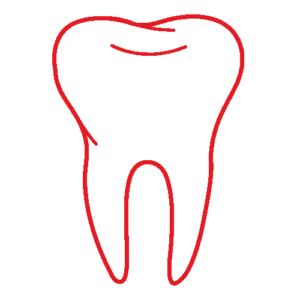What is the concept of orthodontics?
Orthodontics (also known as dentofacial orthopaedics) is a branch of dentistry that focuses on the detection, prevention, and treatment of dental and facial anomalies.
Who exactly is an orthodontist?
An orthodontist is a dental surgeon with additional training and experience of two or three years. Straightening teeth, correcting misaligned jaw structure, and improving the function of your smile are all things that your orthodontist can help you with.
When is the safest time to see an orthodontist?
If you want to change the appearance and sound of your smile, any age is a good time to visit an orthodontist. Children can see an orthodontist about the age of seven, according to the Canadian Association of Orthodontists; however, orthodontic care is not limited to children and teenagers, with around one out of every five orthodontic patients being over the age of 21. Any time is a good time to visit the orthodontist, whether you’re considering treatment for yourself or your kids.
When I’m wearing braces or a retainer, how can I take care of my teeth?
Always brush your teeth after each meal and floss at least once a day.
Using fluoride-containing toothpaste, and ask your orthodontist or family dentist if you need a fluoride rinse. This will aid in the prevention of cavities!
If you remove your retainer to eat, remember to brush your teeth, floss, and store it safely in its jar so it does not get lost or broken.
Wash the retainer gently with a toothbrush and toothpaste to keep it clean as well. You can even wash it in denture cleaner, if your orthodontist recommends it. Do not place your retainer in the dishwasher or in hot water.
During your procedure, try to avoid foods that contain a lot of sugar, as this will increase the amount of bacteria in your mouth, which will lead to more plaque and probably cavities.
Avoid foods that are sticky or chewy (caramel, chewing gum, gummy bears), hard (hard candy, nuts, ice cubes), or that may get stuck in your braces (corn on the cob, soft bagels, ribs, taffy, etc.).
Make an appointment with your family dentist for your regular checkups. It is suggested that you see the dentist every six months.
What exactly are braces?
Your orthodontist can use braces to help you enhance the appearance and sound of your smile. There are many types of braces to choose from, including:
- Braces that are not visible
- Braces made of ceramic
- Braces for the tongue
- Braces that self-ligate
- Braces that aren’t obviousMetal braces are the most common type.
How long do I have to wear braces if I have them?
Since every smile responds to care differently, the length of time spent in braces can vary from patient to patient. Treatment periods range from six to thirty months, but most standard treatments last about 22 months.
Do braces cause discomfort?
Braces are rarely painful, but you may experience some discomfort for a few days as your teeth, gums, cheeks, and mouth adjust to your new braces.
Is it necessary for me to brush my teeth more often if I have braces?
Clean your teeth at least three times a day while wearing braces to keep your teeth, gums, and mouth safe and clean. Brushing your teeth on a regular basis will help extract any food that has become stuck in your braces. You can floss every day to get in between your braces where your toothbrush can’t. When your braces are in place, your orthodontist will teach you how to brush and floss properly.
Do I still need dental checkups every six months if I have braces?
Yes, indeed! In reality, patients undergoing orthodontic care should see their dentist on a regular basis. Food can get stuck in areas that your toothbrush can’t reach with braces. Bacteria build up as a result, which can lead to cavities, gingivitis, and gum disease. Your dentist and orthodontist will work together to keep your teeth clean and safe while you wear braces.
Would my braces prevent me from participating in sports, playing an instrument, or singing at school?
When you first get your braces, playing an instrument or participating in a contact sport may take some adjustment, but braces will not prevent you from participating in all of your school activities. If you participate in a contact sport, you can wear a mouthguard to protect your braces or appliance.
What is the best way for me to make my next appointment?
Simply contact us! Our front desk team will gladly assist you in scheduling your next appointment at your leisure. Please let us know if you are a new patient or have been referred to our practise, and we will provide you with all of the necessary details.

